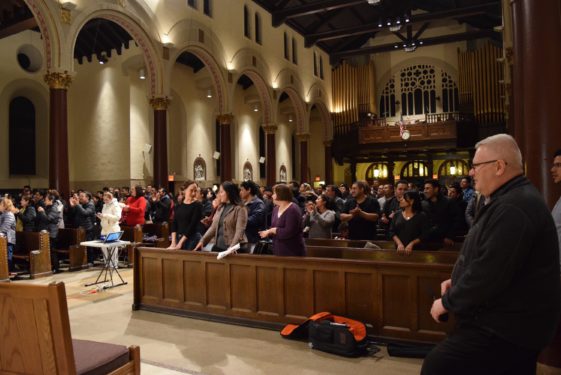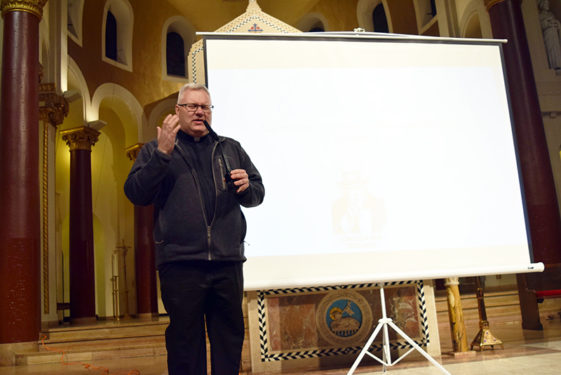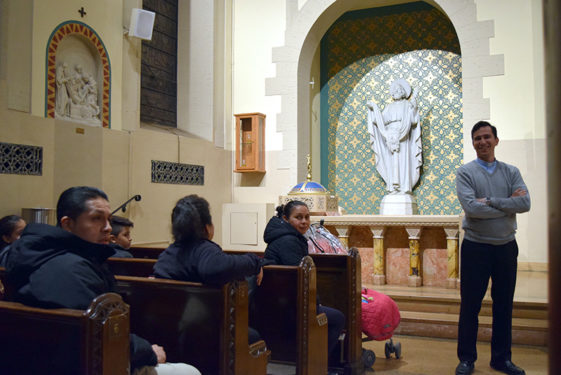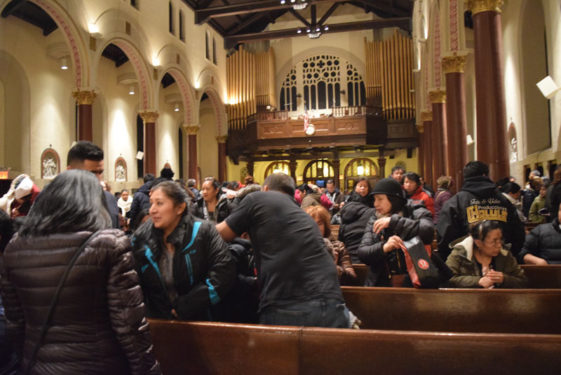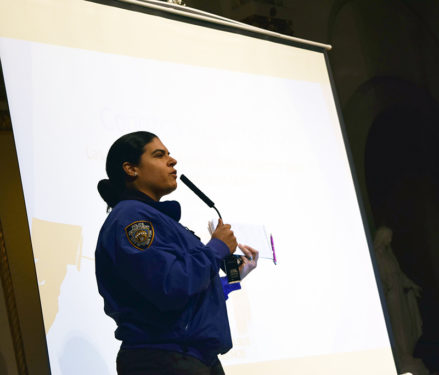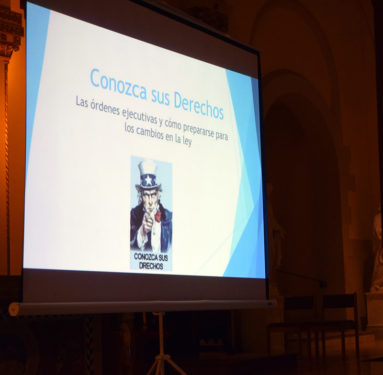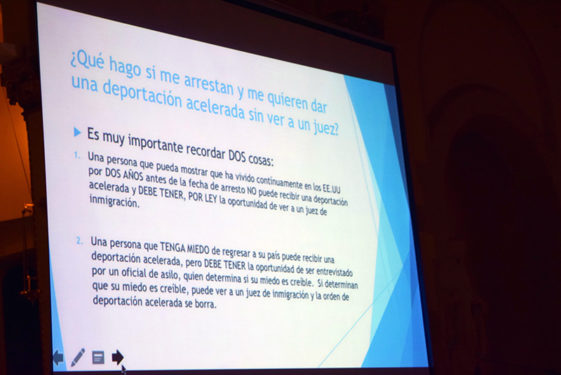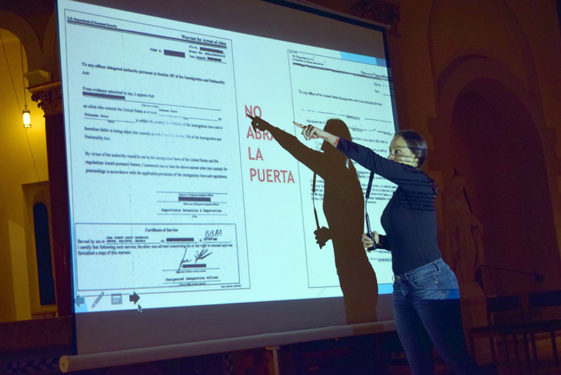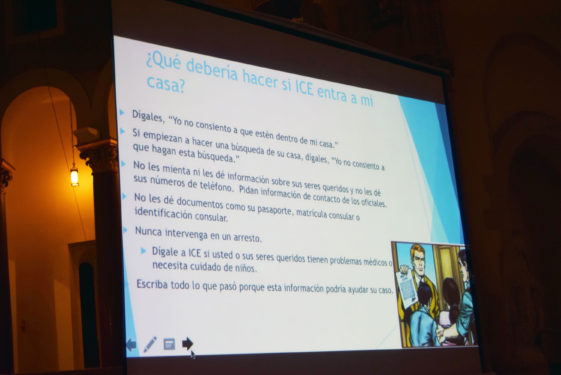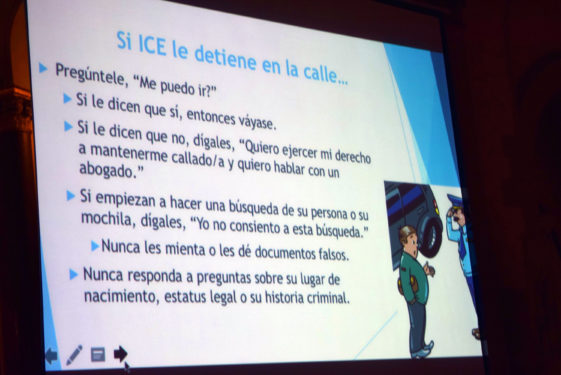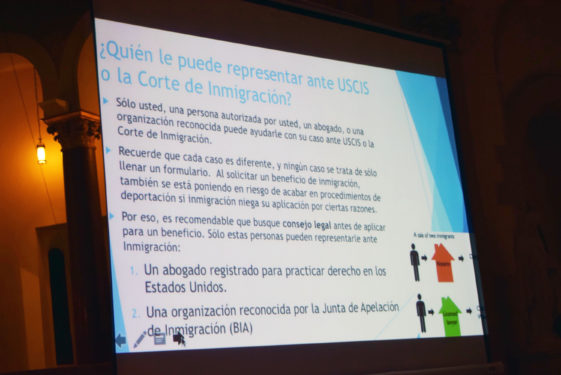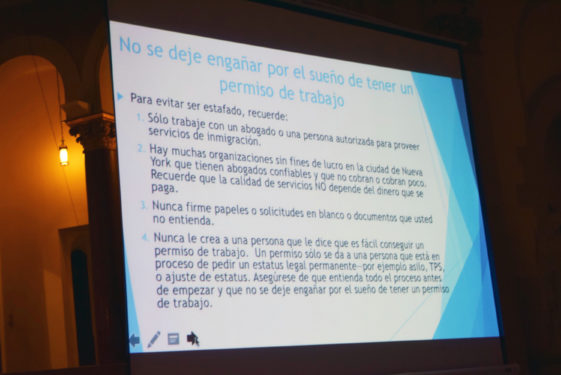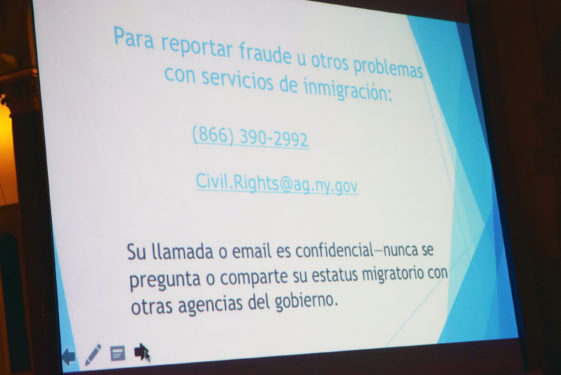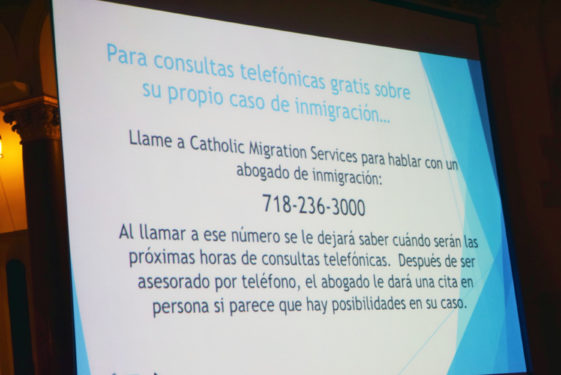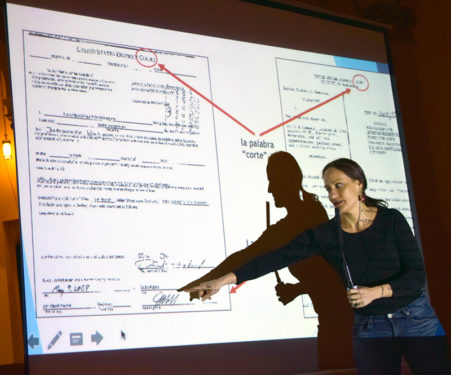
The “Know Your Rights About Immigration” session at St. Bartholomew Church, Elmhurst, March 2, offered more than 800 people an evening of bilingual dialogue and information regarding current developments in immigration law and government enforcement.
The event, presented by the diocese’s Catholic Migration Services, began in high spirits as attendees participated in Spanish praise and worship songs. They moved their hands in unison while singing for peace, if even for a brief moment. According to Father Rick Beuther, pastor of St. Bartholomew, the decision to start with prayer instead of just a presentation was to help ease the tensions surrounding the different topics being discussed.
“People are afraid of being deported,” said CMS staffer Rebecca Rybaltowski, “afraid of being separated from their families, which is really a shame because we don’t know what’s going to happen. They might not get deported, so it’s just very critical right now to have everyone know what’s going on.” As the director of outreach, she said she had seen an increase in the amount of people contacting the organization.
“Oh my goodness, absolutely, people call us all the time,” said Rybaltowski. “We’ve probably gotten double the calls we normally get, (people) wanting a lawyer, wanting to apply for citizenship, people who’ve had their green card for years and all of a sudden just wanting to become citizens because they’re nervous. I’ve had churches call me all the time saying we want an event, we want you to come to our parish, we want you to come do something.”
Providing insight on how to be on the lookout for recent scams that targeted immigrants, including possible misrepresentation by people posing as U.S. Immigration and Customs Enforcement officers, was Janine Rivera from the NYPD’s 110th precinct. Rivera told the audience that while this crime could be occurring frequently in the community, that it was not being reported. She stressed that anyone who was a victim of such a crime should feel comfortable telling police about it and once that happens, officers won’t question the immigration status of the people who would report it.
“It’s very important for you to get involved in your community,” Rivera told the people. “It’s very important for you to come and listen to what’s going on in the community. We’ll tell you what’s going on, what you’re up against, in terms of crime, what’s important in the community.”
The Community Affairs Officer who represents areas including Corona and Elmhurst, said that while more police are out on patrol in the community’s congested areas, it was not because of the Trump administration’s executive orders. Over the last month, officers are handing out information regarding the increase in reported robberies, according to Rivera.
After her talk was a slide show entitled, “Know Your Rights – the executive orders and how to prepare for the changes in the law.”
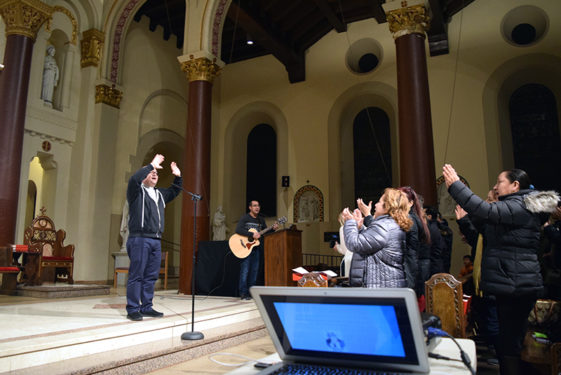
The main speakers were two lawyers from Catholic Migration Services, Megan Jordi and Carla Taveras. Working in tangent, Jordi would read the slides in English while Taveras interpreted in Spanish.
“We want to give you your power back,” Jordi told those sitting in the pews. “We want you to be ready.”
The two discussed why one should ignore gossip and stick to facts when it comes to the immigration ban to sharing the official hotline number where people can call and speak to one of the CMS lawyers over the phone for free, to what the government can do when it comes to accelerated deportation.
“At this moment, people have a chance to see a judge,” said Jordi. “But what Trump wants to do is accelerate the process so that you don’t have that chance to see a judge. There are many advocates who are against this, so I would imagine it wouldn’t be implemented very quickly.”
While going into its details, she said that regardless of status, documented or undocumented, immigrants have a right to see a judge and offered tips when faced with a possible accelerated deportation.
“The first thing is, don’t sign anything,” said Jordi, “because you want to first understand what is happening. You want to talk to an immigration lawyer about your case and you want to be able to prepare to defend yourself. You should insist that you want to see a judge. What we’re recommending is that you always have with you copies of documents that show that you have lived in the United States for at least two years.”
The significance of the time span, she added, was that “written into the law, it says that people who have been in the interior of the country for more than two years cannot be subjective to these accelerated deportations.”
Some in attendance were undocumented immigrants. One, who declined to give his name, was concerned about the status of his family and feared he would be separated from his 4-year-old daughter even after living in the U.S. for more than 20 years.
Visiting from Astoria was Edwina Sarmiento, an immigrant from Quezon City, Philippines. At the end of more than two hours of information, Sarmiento was somewhat satisfied with what she learned that night even though she still wrestled with more questions about where to keep her immigration papers.
“I am not afraid,” said Sarmiento. “I have a different view, that’s why. I am with God, so He will help me up there, whatever problems we have.”
To report fraud and other problems with Immigration Services, you can place a confidential phone call or email to 866-390-2992 or civil.rights@ag.ny.gov. To speak to a Catholic Migration Service immigration lawyer at no cost, call 718-236-3000.

